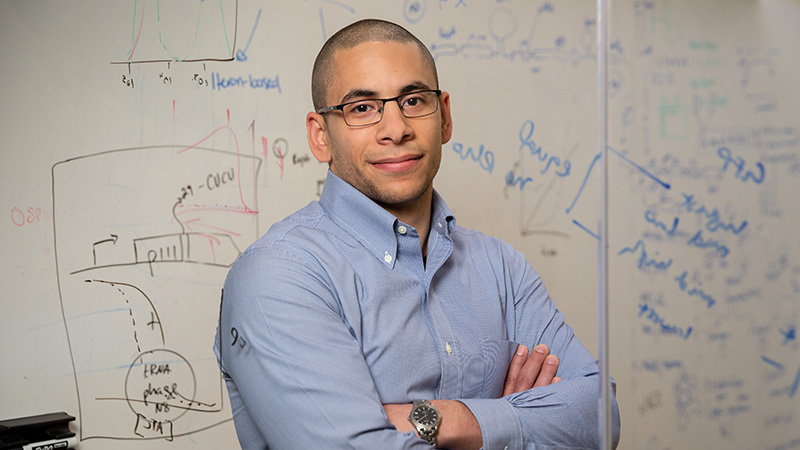
Credit: Scripps Research
Ahmed Badran, PhD, an assistant professor of Chemistry at Scripps Research, is a recipient of the 2024 Homeworld Collective Garden Grant. A nonprofit dedicated to climate biotechnology, Homeworld Collective supports research that uses protein engineering to address environmental challenges. The Garden Grant totals $1.35 million distributed across 16 research teams. Badran was awarded a lump sum of $150,000 toward his proposal on engineering RuBisCO to improve how plants capture carbon dioxide (CO2).
RuBisCO is the primary enzyme involved in light-independent photosynthesis, which encompasses a series of chemical reactions that plants use to convert CO2 into sugar. The problem is that natural evolution is slow, and although photosynthesis has refined this enzyme naturally over time, RuBisCO is still an error-prone and inefficient catalyst. Despite much effort, scientists have made little progress using traditional bioengineering strategies to produce more effective RuBisCO.
But Badran is taking a novel approach—he uses an accelerated form of evolution to boost the enzyme’s efficiency. If successful, this new method could lead to plant-based strategies to mitigate climate change. Badran expects to complete his proposed experiments within 12 months.
Badran has recently received numerous awards and honors to support related research in his lab, including most recently the Young Investigator Research Program Award from the Air Force Office of Scientific Research, the Scialog Negative Emissions Science Initiative Award from the Research Corporation for Science Advancement and the Alfred P. Sloan Foundation, and the Abdul Latif Jameel Water and Food Systems (J-WAFS) Water and Food Grand Challenge Award.